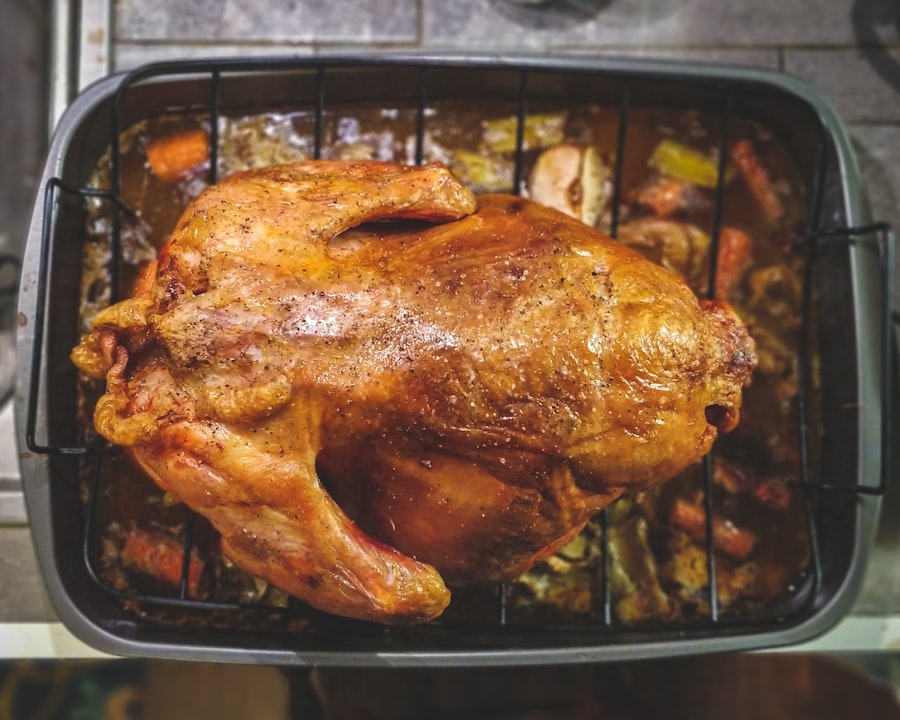Protein is a crucial macronutrient composed of amino acids, which are fundamental components of cells, tissues, and organs. It is essential for tissue growth and repair, enzyme and hormone production, and the formation of various bodily molecules. Protein is a key constituent of muscles, bones, skin, and blood, contributing significantly to overall bodily strength and health.
Adequate protein intake is important for several reasons. It supports muscle growth and repair, making it vital for physically active individuals and those aiming to build or maintain muscle mass. Protein also aids in weight management by promoting satiety and potentially reducing overall calorie consumption.
Furthermore, it plays a role in maintaining immune function, supporting healthy hair and nail growth, and facilitating the production of important molecules like hemoglobin and antibodies.
Key Takeaways
- Protein is essential for muscle repair and growth, as well as overall health and wellness.
- High protein meals can help with weight management, increase feelings of fullness, and support muscle mass.
- Top sources of protein include lean meats, poultry, fish, eggs, dairy products, legumes, and nuts.
- High protein meal ideas include grilled chicken with quinoa and roasted vegetables, Greek yogurt with berries and nuts, and tofu stir-fry with brown rice.
- Balancing protein with carbohydrates, healthy fats, and fiber is important for overall health and optimal nutrition.
The Benefits of Incorporating High Protein Meals into Your Daily Routine
Incorporating high protein meals into your daily routine can offer a wide range of benefits for your overall health and well-being. Firstly, high protein meals can help to support weight management and promote a healthy body composition. Protein has been shown to increase feelings of fullness and satiety, which can help to reduce overall calorie intake and support weight loss or maintenance goals.
Additionally, a higher protein intake has been associated with a greater preservation of lean muscle mass during periods of weight loss, which can be important for maintaining a healthy metabolism and physical function. Furthermore, high protein meals can also support muscle growth and repair, making them beneficial for individuals who are physically active or looking to build and maintain muscle mass. Consuming protein-rich meals after exercise can help to promote muscle recovery and adaptation, leading to improved performance and physical function over time.
Additionally, high protein meals can also support bone health, as protein is an important component of bone tissue and is necessary for maintaining strong and healthy bones. Lastly, incorporating high protein meals into your daily routine can help to stabilize blood sugar levels and reduce cravings for unhealthy foods, making it easier to maintain a balanced and nutritious diet.
Top Sources of Protein to Include in Your Diet

There are many different sources of protein that you can include in your diet to meet your daily needs. Animal-based sources of protein include meat, poultry, fish, eggs, and dairy products such as milk, yogurt, and cheese. These foods are considered complete proteins, as they contain all of the essential amino acids that the body needs.
Plant-based sources of protein include beans, lentils, chickpeas, tofu, tempeh, edamame, quinoa, nuts, seeds, and whole grains such as barley and farro. While plant-based sources of protein may not contain all of the essential amino acids on their own, they can be combined to create complete proteins. In addition to whole foods, there are also many protein-rich products available on the market, such as protein powders, bars, and shakes.
These products can be convenient options for individuals who have higher protein needs or who are looking for quick and easy ways to increase their protein intake. When choosing protein sources, it’s important to consider the overall nutrient profile of the food or product, as well as any added ingredients such as sugar or artificial additives. Aim to include a variety of protein sources in your diet to ensure that you are getting a wide range of nutrients and amino acids.
Delicious and Nutritious High Protein Meal Ideas
| Meal Idea | Protein Content (g) | Calories | Preparation Time (min) |
|---|---|---|---|
| Grilled Chicken Breast | 30 | 250 | 20 |
| Quinoa Salad with Chickpeas | 15 | 300 | 15 |
| Tuna and White Bean Salad | 25 | 280 | 10 |
| Egg and Spinach Omelette | 20 | 200 | 15 |
There are countless delicious and nutritious high protein meal ideas that you can incorporate into your daily routine. For breakfast, consider options such as Greek yogurt with berries and nuts, a veggie omelet with spinach and feta cheese, or oatmeal topped with almond butter and chia seeds. For lunch or dinner, try meals like grilled chicken with quinoa and roasted vegetables, black bean tacos with avocado and salsa, or a tofu stir-fry with mixed vegetables and brown rice.
Snack options can include things like hard-boiled eggs with whole grain crackers, hummus with carrot sticks, or a protein smoothie made with spinach, banana, and protein powder. When preparing high protein meals, aim to include a variety of colorful fruits and vegetables to ensure that you are getting a wide range of nutrients in addition to protein. Experiment with different herbs and spices to add flavor to your meals without relying on excessive amounts of salt or added sugars.
Additionally, consider incorporating healthy fats such as avocado, nuts, seeds, and olive oil into your meals to provide additional nutrients and promote feelings of fullness. By including a variety of high protein foods in your meals and snacks throughout the day, you can ensure that you are meeting your body’s needs for this important macronutrient.
How to Balance Protein with Other Nutrients for Optimal Health
While it’s important to focus on including adequate amounts of protein in your diet, it’s also essential to balance this macronutrient with other nutrients for optimal health. Carbohydrates are an important source of energy for the body and should be included in your meals to support physical activity and brain function. Aim to include complex carbohydrates such as whole grains, fruits, vegetables, and legumes in your diet to provide sustained energy and important vitamins and minerals.
Additionally, healthy fats are important for supporting cell structure and function, as well as for absorbing fat-soluble vitamins. When planning your meals, aim to include a balance of protein, carbohydrates, and fats to ensure that you are getting a wide range of nutrients. For example, a balanced meal might include grilled salmon (protein) with quinoa (carbohydrate) and steamed broccoli (fiber and vitamins) drizzled with olive oil (healthy fat).
By including a variety of nutrient-dense foods in your meals, you can ensure that you are meeting your body’s needs for all essential nutrients while also enjoying delicious and satisfying meals.
Tips for Meal Prepping and Planning High Protein Meals

Plan Ahead and Save Time
Set aside time each week to plan out your meals and snacks, taking into consideration your schedule and any upcoming events or commitments. Consider batch cooking proteins such as chicken breast, tofu, or lentils that can be used in multiple meals throughout the week.
Prepare Balanced Meal Components
Preparing grains such as quinoa or brown rice in advance can also save time when it comes to assembling meals. When meal prepping high protein meals, consider creating balanced meal components that can be mixed and matched throughout the week. For example, prepare a variety of roasted vegetables that can be paired with different proteins and grains for easy meal assembly.
Grab-and-Go Snacks for Success
Additionally, consider preparing grab-and-go snacks such as hard-boiled eggs, portioned-out nuts or seeds, or pre-portioned containers of Greek yogurt with fruit. By taking the time to plan and prepare your meals in advance, you can set yourself up for success when it comes to meeting your protein needs throughout the week.
Incorporating High Protein Snacks into Your Daily Routine
In addition to incorporating high protein meals into your daily routine, it’s also important to include high protein snacks to help meet your body’s needs for this important macronutrient. Snacks can help to bridge the gap between meals and provide sustained energy throughout the day. Consider options such as cottage cheese with fruit, a small handful of almonds or cashews, or a hard-boiled egg with whole grain crackers.
Greek yogurt with honey or nut butter on whole grain toast are also great options for satisfying high protein snacks. When choosing high protein snacks, aim to pair them with other nutrient-dense foods such as fruits or vegetables to provide additional vitamins, minerals, fiber, and antioxidants. This can help to ensure that you are getting a wide range of nutrients throughout the day while also enjoying delicious and satisfying snacks.
By incorporating high protein snacks into your daily routine, you can help to support muscle growth and repair while also promoting feelings of fullness and satiety between meals.





